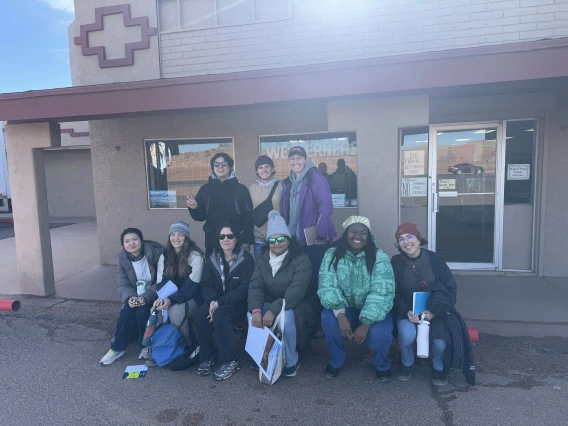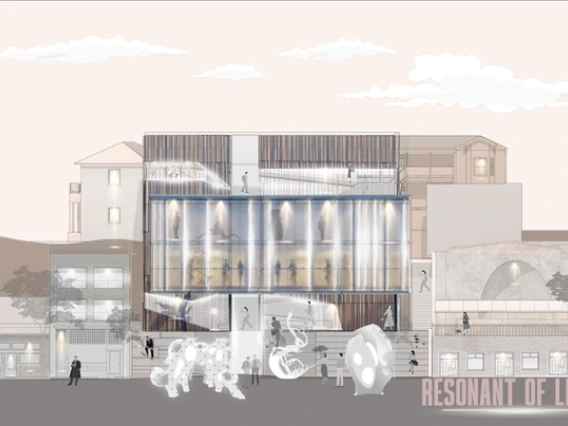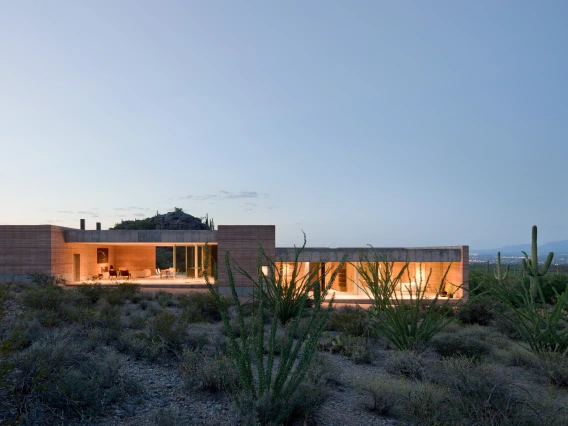New federally funded center will rely on UArizona expertise to help communities manage extreme heat
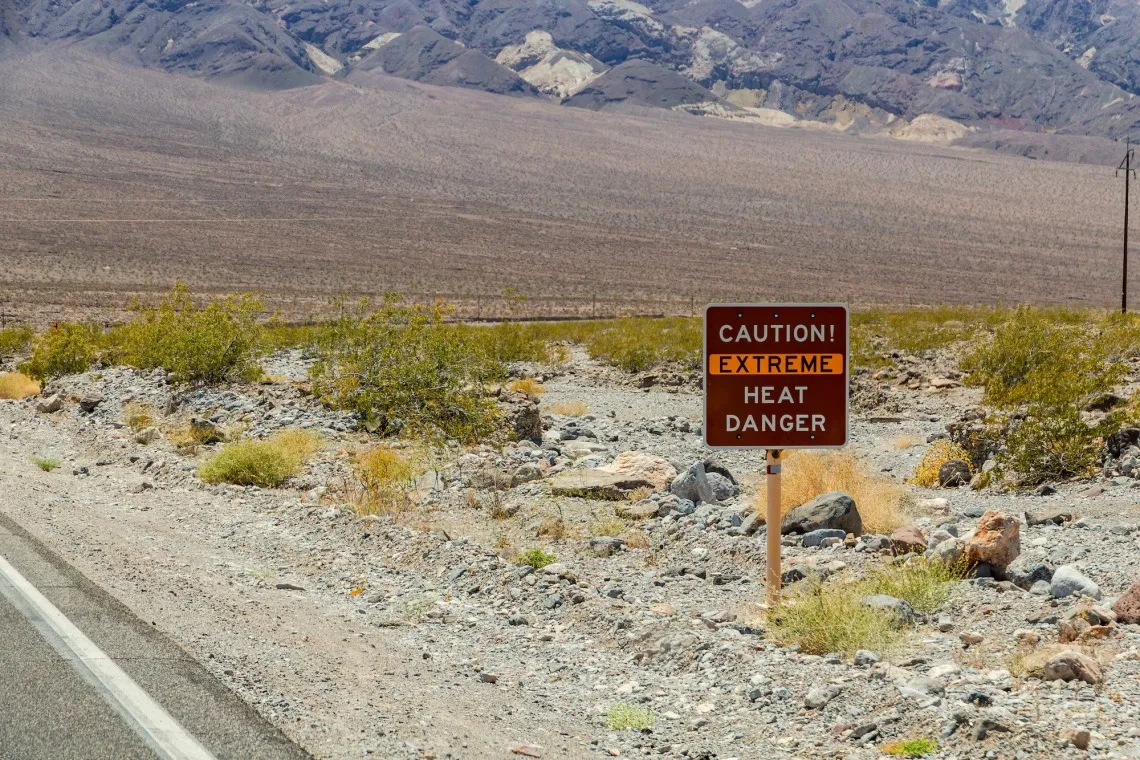
The new center is launching at a "perfect time," as some government leaders prioritize plans, resources and people to address issues caused by rising heat.
A new federal initiative will rely on University of Arizona research and scholarship to help communities across the U.S. create policies and take action to mitigate and manage extreme heat. The university's involvement in a new Center for Heat Resilient Communities, which the U.S. Department of Commerce and the National Oceanic and Atmospheric Administration announced Monday, will help translate climate research into policies and guidelines.
UArizona and Arizona State University are partner institutions with the center, which is led by faculty and staff at the University of California, Los Angeles. A grant for $2.25 million from the Department of Commerce and NOAA will fund the center for the next three years, with about $108,000 of that going to UArizona. The funding comes from the National Integrated Heat Health Information System, a collaboration of federal agencies focused on addressing issues caused by extreme heat.
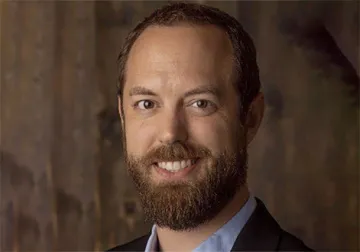
Ladd Keith, University of Arizona Associate Professor of Planning and Sustainable Built Environments.
Ladd Keith, an associate professor in the UArizona College of Architecture, Planning and Landscape Architecture and an expert in extreme heat governance and urban planning, will lead UArizona's involvement in the center.
"What we'll do with the center is take the best practices that we've seen quickly develop in some places, take the best science and research being conducted and translate that into actionable policies that communities can do on the ground," said Keith, who is also a faculty research associate in the university's Udall Center for Studies in Public Policy.
For Keith, the Center for Heat Resilient Communities is the latest in a long line of efforts to help communities translate scientific research about extreme heat into action. Keith is also the lead UArizona researcher on a $25 million project, funded by the U.S. Department of Energy, to study the impacts of climate change on Arizona's urban areas. That project, called the Southwest Urban Corridor Integrated Field Laboratory, also includes researchers from the other state universities.
The new center will take this type of work beyond the state of Arizona, Keith said.
"The center provides the University of Arizona the opportunity to take what we do best as a land-grant institution and serve communities across the country," he said.
The 'perfect time' for heat resilience research
Researchers have long known that good heat governance requires coordination across government agencies, Keith said. To that end, many state and local governments have set up working groups, committees and other formal partnerships between agencies to focus on heat mitigation and management strategies.
Those partnerships often help prepare communities to address extreme heat events and to implement cooling strategies, such as the establishment of more green spaces or the use of cooler pavement products or reflective roofing materials.
But each community's needs will differ, Keith said, and their needs will evolve over time as the climate continues to change.
"Heat resilience is really this idea that we're in a world where climate change is going to be constantly pushing us to new temperature thresholds with new extreme heat risks," Keith said. "So, resilience is not something you do once and you're finished; it's really a continued process that we have to go through and look at systems holistically."
The trend toward a warmer climate is clear from global heat data for the last decade, which was the hottest on record. Temperatures in 2023 broke the global heat record, and temperatures specifically in the Southwest set records last summer.
The center is launching at a "perfect time," Keith said, as some government leaders prioritize plans, resources and people to address issues caused by rising heat. Arizona and Phoenix, as examples, have appointed chief heat officers to oversee the state or city's response to heat-related issues.
But other communities, especially smaller ones with fewer resources, have not been able to move as quickly. The center, Keith and his colleagues hope, will help jump-start a national effort to address those delays.
The center's researchers at all three universities will recruit and partner with 30 U.S. communities with varying sizes, locations and populations. Researchers plan to recruit the first communities in the coming months, Keith said.
Over the next three years, the center will work with these communities to develop and refine policy recommendations and strategies, and will provide support and guidance for enacting policies and taking recommended steps. The center will also provide the federal government with actionable recommendations for supporting communities by leveraging a large network of experts – including scholars, government and nongovernmental organizations, and people working in the private sector – to develop guidelines for community heat planning.
Tribal partnerships
The Center for Heat Resilient Communities will have a strong focus on supporting disadvantaged and underserved communities. A key contribution from UArizona will be partnering with tribal communities on heat mitigation and management solutions that respect tribal customs and knowledge.
Experts from the UArizona Native Nations Institute will train researchers at the center in best practices for working with tribal communities in ways that respect tribes' sovereignty, culture and traditions. NNI is renowned for its training in Native nation building, which involves educating tribes on evidence-based methods for how Indigenous communities can exercise their sovereignty and practice self-determination.
Stephanie Carroll, another UArizona researcher involved with the new heat center, is an associate professor in the Mel and Enid Zuckerman College of Public Health and an NNI research associate whose work has long focused on how Indigenous communities can maintain control over data collected about their citizens, lands and cultures – a concept called Indigenous data sovereignty.
Researchers intending to work with tribes must go beyond the basic recognition that tribes have existed for centuries, Carroll said. They must also understand and respect the longstanding relationship tribes have with their lands and environments, and consider those relationships alongside traditional science.
"It's not only about learning the right way to think of tribes and bringing them to the table," Carroll said. "Tribes need data in order to govern. They also need to be able to take care of their knowledge, whether it's within their own systems or fed back into a wider community."
The heat policy guidance that the center will create, deliver and refine with the initial 30 communities will be made publicly available on the National Integrated Heat Health Information System website, Heat.gov, for other communities to learn from and use.
Other UArizona faculty members involved with the center are Laura Bakkensen, associate professor in the School of Government and Public Policy in the College of Social and Behavioral Sciences, and Heidi Brown, associate professor in the Zuckerman College of Public Health.
Craig Baker, marketing and communications lead for the Udall Center for Studies in Public Policy, contributed reporting to this article.

